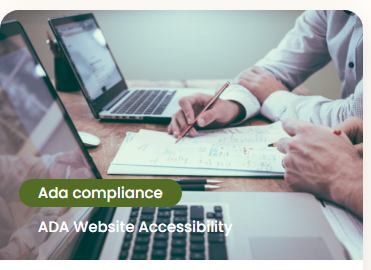What is the ADA?
The ADA is an acronym for the Americans with Disabilities Act. State and local governments, including public transportation authorities, are forbidden from discriminating against people with disabilities. Title III of the Act prohibits discrimination against people with disabilities in public accommodations.
Why is ADA compliance important?
Due to the fact that law requires it, ADA compliance is imperative. Businesses risk facing severe fines, civil litigation, and negative publicity for any violations of the Act.
ADA compliance also makes business sense. This is so because people who support the employment of people with disabilities tend to favor businesses that uphold social responsibility. Simply by opening the door to the market that includes people with disabilities, socially responsible businesses typically have more clients since they follow the ADA standards and other rules in the ADA compliance manual.
Compliance with the ADA also qualifies a company or organization for tax credits. For instance, the Internal Revenue Service typically provides various tax write-offs for organizations that are accessible to people with disabilities. The Disabled Access Credit, one of these tax credits, provides up to $5000 for costs made to increase accessibility for people with impairments.
The 5 steps toward ADA compliance
Here are the five key steps you can take toward complying with the ADA:
- Understand the basics about the ADA
Take time to find out more about ADA compliancebecause that will give you a better idea of what is required to be compliant in your business domain.
For instance, if your line of work entails interacting with clients who use your website, you should become familiar with the fundamentals of ADA website compliance, including doing the ADA website compliance test.
- Develop a written ADA compliance implementation plan
In order to comply with the ADA, you must have a plan that you can refer to as you work to remove any potential access obstacles connected to your product or service. For many businesses and organizations, it might not be simple to create a written ADA compliance plan. Experts in ADA compliance, like ADA Compliance Pros, may be able to assist organizations and businesses like those.
- Execute your ADA compliance plan
Once you have developed your ADA compliance implementation plan, you need to put in place mechanisms to execute the plan. This may involve using the set standards for your product’s compliance to remove any existing barriers to the extent it is achievable. For organizations involved in website-related businesses, this may entail undertaking preliminary audits of the websites using a free ADA website compliance checker.
- Put in place a policyto assure compliance with the periodic ADA updates
Complying with the ADA requires keeping tabs on any ADA updates. Additionally, it entails learning about industry-specific best practices for ADA compliance. For instance, conducting regular website audits by individuals with disabilities and employing an ADA compliant website checker is a popular trend for businesses and organizations in the digital accessibility arena.
- Provide an accessible ADA compliance statement
Having an accessible ADA compliance statement helps you and your customers know what has been achieved in terms of ensuring compliance. Always remember to include your organization or business' contact information in your statement so that people with disabilities who come across an ADA violation while using your product can report it to you.
Get help to comply with the ADA
For some businesses, ADA compliance may be cumbersome and distract them from their primary objectives. Because of this, it is recommended that those businesses consult an ADA agency that can assist them in taking the necessary actions to become compliant with the law while they focus on the main goals of their businesses.
Call (626) 486-220 to speak with an ADA compliance specialist, or click here to send your question or request for additional information on ADA compliance.





Comments